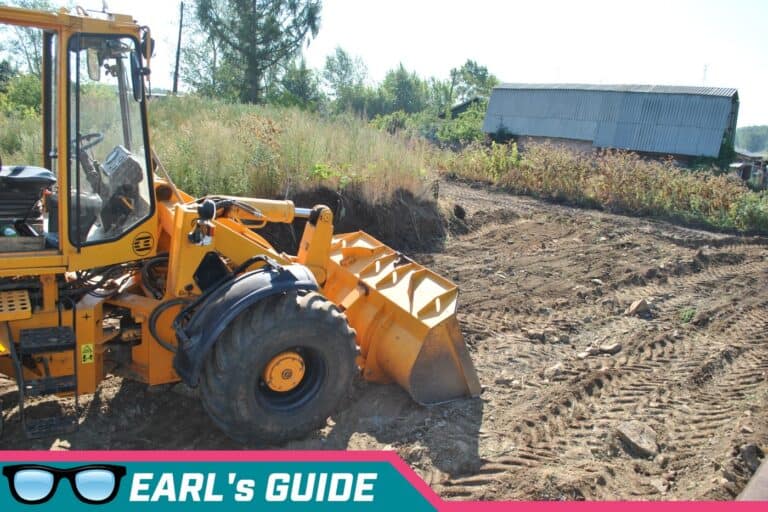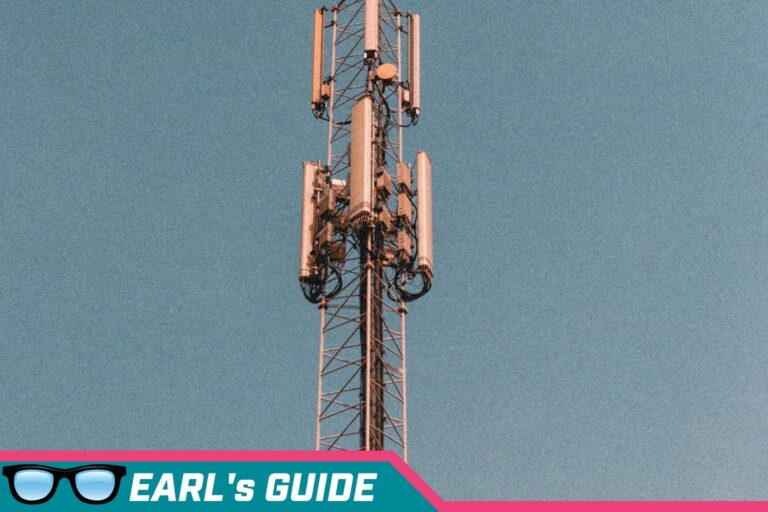Leveraging Technology for Better Management: Reservation Systems, Mobile Apps, and More
The RV park industry is evolving rapidly, with technological advancements reshaping the landscape and customer expectations. Today’s RVers are more tech-savvy than ever, demanding seamless, hassle-free experiences both online and on-site. For RV park owners, embracing technology is no longer optional; it’s a necessity.
Having had hands-on experience in designing and administering reservation systems through platforms like ResNexus and Campspot, I’ve witnessed firsthand the transformative power of technology. By integrating these systems, the ratio of reservations made at one park changed drastically, moving from a 70% phone and 30% online split to an impressive 60% online and 40% over the phone. This shift not only improves efficiency but also enhances guest experience.
Here’s a dive into the world of technological tools available and how RV park owners can harness them for better park management:
1. Reservation Systems: The Digital Front Desk
- Efficiency and Accessibility: With systems like ResNexus, Staylist and Campspot, reservations become a breeze. These platforms offer real-time availability, ensuring guests can book their desired spot without double-booking hassles. They’re accessible 24/7, allowing guests to book whenever it’s convenient.
- Improved User Experience: A streamlined online reservation process reduces friction for potential guests. With intuitive interfaces and immediate confirmation, guests are more inclined to book online than to make a phone call.
- Automated Processes: These systems can handle deposits, send out confirmation emails, and even manage cancellations, saving staff time and reducing errors.
2. Mobile Apps: At Your Guest’s Fingertips
- On-Demand Information: Mobile apps can serve as a digital guidebook for your park, providing guests with essential information, park maps, and event schedules, all accessible from their smartphones.
- Push Notifications: Engage guests with real-time updates. Whether it’s a special event, weather alerts, or promotional deals, push notifications ensure guests stay informed.
- Feedback and Reviews: Encourage guests to leave feedback and reviews directly through the app. This real-time feedback can provide invaluable insights into areas for improvement.
3. Wi-Fi Infrastructure: A Must-Have Amenity
In today’s connected world, robust Wi-Fi is as essential as water and electricity for many RVers.
- Guest Satisfaction: Offering reliable Wi-Fi can significantly enhance guest satisfaction. Whether it’s for work, entertainment, or staying in touch with loved ones, campers value a strong connection.
- Potential Revenue Stream: While many parks offer free basic Wi-Fi, there’s potential to provide premium tiers with faster speeds for a fee.
4. Integrated Point-of-Sale (POS) Systems
- Unified Management: Modern POS systems can integrate with reservation platforms, helping park owners manage bookings, retail sales, and amenities rentals from a single interface.
- Data Insights: POS systems can provide valuable data on sales trends, popular products, and peak business times, enabling smarter decision-making.
5. Smart Campsite Management
- IoT (Internet of Things): Deploying IoT sensors can provide real-time data on utilities usage, enabling efficient resource management.
- Security Enhancements: Modern surveillance systems, smart locks, and gate access controls ensure a secure environment for guests, staff, and assets.
6. Embracing Social Media and Digital Marketing
- Increased Visibility: Regular posts, engaging content, and online advertising can drive traffic to your reservation system, leading to higher online bookings.
- Feedback Loop: Social media platforms are also avenues for feedback, reviews, and direct guest interactions.
Investing Time in Reservation Systems: Behind-the-Scenes of Streamlined Customer Experience
When it comes to enhancing the reservation experience for RV park guests, it isn’t just about having a system in place. The true magic lies in the intricate details, the tweaks and customizations that elevate the user experience from satisfactory to exceptional. But this level of refinement doesn’t come easy; it demands significant time, research, and hands-on interaction with the system.
As an RV park owner or manager, my involvement with reservation systems is far more profound than most might realize. Here’s a glimpse into the behind-the-scenes dedication:
1. Deep Diving into System Capabilities
Most reservation platforms offer a plethora of features, many of which aren’t immediately obvious or part of the standard setup. I dedicate countless hours to exploring these features, delving deep into user manuals, online forums, and even reaching out to customer support to unravel the full potential of the system. This commitment ensures that our RV park can utilize every tool at our disposal to offer guests a seamless reservation process.
2. Keeping Up with Updates and Changes
Technology is ever-evolving, and reservation platforms are no exception. New updates roll out frequently, each promising improved functionalities, bug fixes, or fresh features. It’s crucial to stay on top of these changes, which means setting aside regular time to review update logs, test new features, and assess their potential impact on our operations and user experience.
3. Hands-On Testing from a Customer’s Perspective
Understanding a system from the backend is one thing, but truly grasping the customer experience requires a different approach. I routinely put myself in the shoes of our guests, making test reservations to view the process from their perspective. This hands-on testing highlights any potential hiccups, confusing steps, or inefficiencies that might deter a potential guest or lead to booking mistakes.
4. Gathering and Reacting to Feedback
The true test of any system’s effectiveness is the feedback from its end users. I pay close attention to comments, concerns, and suggestions from guests regarding their booking experience. This direct feedback is invaluable, offering real-world insights that can guide further refinements and adjustments to the system.
5. Iterative Improvements
Based on hands-on testing and guest feedback, changes are implemented iteratively. Every modification, whether it’s a simple tweak in the booking flow or a major overhaul of a feature, is tested and re-tested. By monitoring how consumers react to these changes, I can continuously improve, ensuring the reservation process is as intuitive and user-friendly as possible.
At the end of the day, an effective reservation system isn’t just about software; it’s about the dedication and commitment of those behind it. My extensive investment in research, testing, and iterative improvements is a testament to the unwavering commitment to offering guests the best possible booking experience. While these efforts might remain unseen by many, their impact is undeniable, reflecting in the ease and convenience that our guests experience every time they reserve a spot at our RV park.
Features vs. Functionality: Tailoring Reservation Systems to Your RV Park’s Unique Needs
In today’s technologically driven landscape, reservation systems come packed with an abundance of features and options. At first glance, this might seem like a boon – after all, more features should mean a more versatile system, right? However, while these capabilities offer potential, it’s essential to approach them with discernment. Every RV park has its unique identity, and what works wonders for one might not necessarily suit another.
Let’s delve into why, despite the allure of multiple features, it’s crucial to customize systems based on an RV park’s individual character and clientele.
1. Understanding Your Clientele
Your RV park’s clientele is its lifeblood. These are the individuals who choose your facility over countless others, and their preferences, needs, and expectations can differ vastly from guests at another park. For instance, a park catering mainly to younger, tech-savvy adventurers might benefit from a feature-rich mobile app. In contrast, a park frequented by an older demographic might prioritize ease of use and accessibility over advanced features.
2. Avoiding Feature Overload
A common pitfall is the assumption that leveraging all available features will automatically enhance user experience. In reality, an overcrowded interface or complex user journey can deter guests. It’s a classic case of “less can be more.” By streamlining features and only implementing those that truly align with your park’s ethos and your guests’ needs, you can offer a more seamless and intuitive booking experience.
3. Maintaining Brand Consistency
Your RV park has its unique brand image – a blend of aesthetics, values, and the overall vibe that guests associate with your establishment. Introducing features that don’t align with this image can create a jarring disconnect. For example, if your park is marketed as a back-to-basics, nature-focused retreat, implementing a high-tech virtual reality tour might feel out of place.
4. Cost Considerations
While it might be tempting to opt for a system with every conceivable feature, there’s a cost implication to consider. Some reservation platforms might charge extra for premium features or have tiered pricing models. It’s crucial to assess if the investment in a particular feature will genuinely translate to enhanced guest satisfaction or ROI.
5. Flexibility and Scalability
The RV park industry is dynamic, and guest preferences evolve. While it’s essential to tailor your reservation system to your current needs, it’s equally important to ensure there’s room for growth and adaptability. Choosing a system that allows for flexibility ensures you can introduce or retract features as your clientele’s preferences shift over time.
The allure of a feature-packed reservation system is undeniable. But in the quest for optimal guest experience, it’s vital to remember that every feature isn’t necessarily a benefit. Tailoring your system to reflect your RV park’s unique character and clientele’s needs ensures that technology serves as an enabler, not a deterrent. By strategically selecting and implementing features, RV park owners can ensure their reservation system isn’t just state-of-the-art but is also in perfect harmony with their establishment’s ethos.
Late Arrival Strategy: Streamlining Bookings with Digital Payment Platforms
For RV park owners, ensuring maximum occupancy and revenue generation is always top of mind. Yet, the reality is that travelers don’t always keep to predictable schedules. Late arrivals are common, often after the front desk has closed, which can pose a challenge for both the guest looking for a spot and the park trying to maximize its occupancy. Enter the solution: leveraging technology for late arrival bookings via platforms like Venmo or Cash App. Let’s delve into the benefits and how this strategy can be a game-changer.
1. Seamless Guest Experience
Nothing is more frustrating for a weary traveler than arriving at a destination, only to face complications securing a spot. Displaying real-time availability for late arrivals ensures guests can instantly see which sites are open, making the process hassle-free.
2. Increased Revenue and Occupancy
The traditional model, where bookings are restricted to front desk hours, inevitably leads to lost revenue opportunities. With the late arrival strategy, even sites that remain unoccupied until late in the evening can generate income, thereby ensuring a higher occupancy rate.
3. Reduced Staffing Pressure
Relying on staff to manage late arrivals can be cumbersome. It might necessitate extended hours or after-hours call-outs, both of which can increase operational costs and staff burnout. An automated late-arrival booking system, integrated with digital payment options, eliminates this need.
4. Immediate, Secure Payments
Platforms like Venmo or Cash App have gained immense popularity owing to their ease of use and instant payment processing. For RV park owners, this means immediate revenue recognition without the need for physical payment gateways or delayed bank transfers. Additionally, these platforms have robust security measures, ensuring safe transactions for both parties.
5. Enhanced Marketing Potential
Offering and promoting such convenience can be a unique selling point for an RV park. In today’s digital age, travelers often share their experiences online. A smooth, hassle-free late arrival and booking process can lead to positive reviews and word-of-mouth referrals.
6. Flexibility and Adaptability
The beauty of digital platforms lies in their adaptability. As payment trends evolve, RV parks can easily integrate newer platforms or features, ensuring they remain at the forefront of customer convenience.
Implementation Considerations:
- Clear Signage: It’s essential to have clear signage at the RV park entrance, directing late arrivals to the booking system and providing step-by-step instructions for payment.
- Integrate with Reservation System: Ensure that the digital payment system integrates seamlessly with the park’s reservation system to update site availability in real-time.
- Regular Audits: Periodically review and audit the system to ensure accurate financial tracking and guest satisfaction.
- Security Measures: While platforms like Venmo and Cash App are secure, always ensure that the RV park’s Wi-Fi and digital infrastructure have robust security measures to protect guest data.
In the evolving landscape of the RV industry, park owners must adapt to changing traveler behaviors and preferences. By embracing technology for late arrival bookings, RV parks can not only enhance guest satisfaction but also ensure consistent revenue streams and efficient operations. As the digital era advances, such integrations will become less of a luxury and more of a necessity for forward-thinking RV park owners.
Conclusion
The trajectory of the RV park industry is clear: technology is paving the way forward. Embracing digital tools and systems doesn’t just bring operational efficiencies; it elevates the entire guest experience. By staying attuned to these advancements and integrating them into your park’s management strategy, you can ensure your park isn’t just keeping up with the times, but leading the charge into the future.

Robert Earl
Robert EarlRobert has 20+ years of experience as a Real Estate Agent, Coach & Digital Marketer. Robert Earl is passionate about teaching and empowering others to pursue their dreams and create sustainable income. Whether through a career in real estate, affiliate marketing, niche blogging, or transforming campgrounds into thriving communities, his proven strategies and techniques have helped numerous individuals and businesses succeed. Based on his years of experience and knowledge in the online marketing industry, along with his hands-on management in the Real Estate & RV Park sector, he has crafted a unique and effective approach to personal and professional growth. In addition to his business pursuits, Robert is also a CrossFit Online Level 1 Trainer (CF-OL1) and enjoys fitness activities, including Rucking workouts while traveling the country. His multifaceted career showcases his dedication to growth, innovation, and the pursuit of excellence in various domains.






